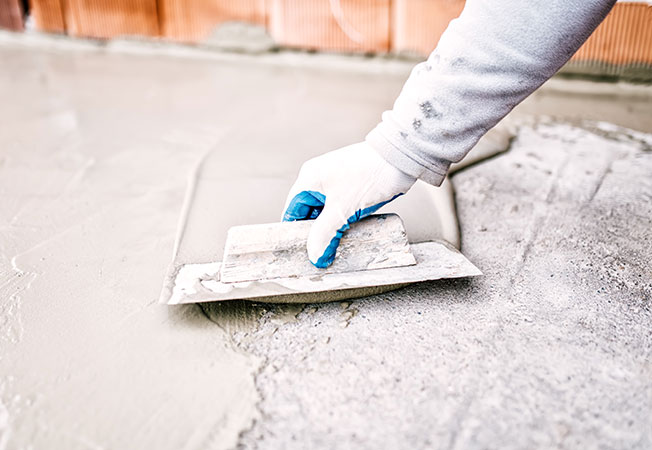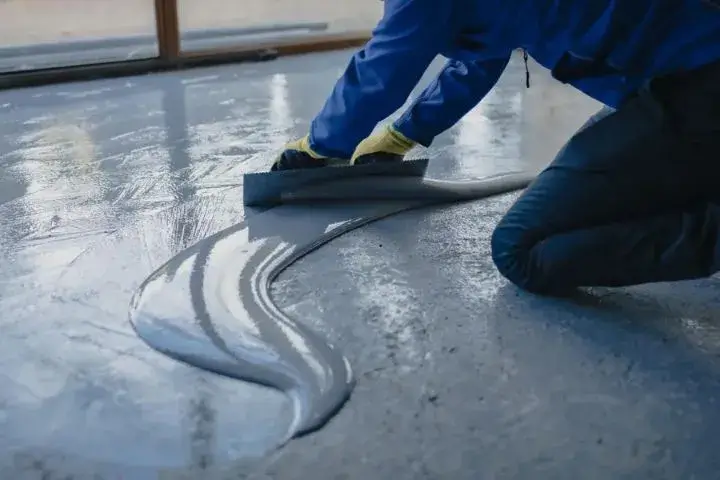Water Solutions That Get Results: Omaha’s Most Effective Systems

All Concerning Waterproofing: Understanding Its Relevance and Benefits for Your Home
Waterproofing is a crucial element of home maintenance that numerous homeowners neglect. It serves to protect structures from the damaging effects of water seepage, which can lead to significant concerns over time. Understanding the different techniques and their value can assist homeowners make educated decisions. As the discussion unfolds, the genuine concern stays: how can effective waterproofing change a home's strength versus moisture-related risks?
What Is Waterproofing and How Does It Work?
Waterproofing is an essential procedure created to secure structures and structures from water seepage. It includes the application of various products and strategies that produce an obstacle, protecting against water from penetrating surface areas. Typical waterproofing techniques consist of the use of membranes, coatings, and sealers, which can be applied to roof coverings, foundations, and wall surfaces. Each technique is selected based upon the specific needs and conditions of the structure.The effectiveness of waterproofing relies on proper installment, ensuring that all locations are appropriately covered and secured. Products such as bituminous membrane layers, fluid waterproofing substances, and cementitious finishings are regularly used, each offering distinct advantages. Additionally, water drainage systems might be incorporated to reroute water away from at risk locations, better boosting defense. Generally, waterproofing not just safeguards structural stability but additionally enhances long life, making it a critical factor to consider in construction and renovation tasks.
The Relevance of Waterproofing for Homeowners
Home owners deal with numerous challenges in maintaining their homes, and among the most substantial issues is water damage. This problem can develop from different sources, including heavy rainfall, flooding, and pipes failings. When left unaddressed, water damages can lead to extreme architectural issues, mold development, and expensive repair work. Waterproofing stands as a vital safety net that secures homes from these prospective dangers.
Common Waterproofing Approaches and Techniques
When taking into consideration waterproofing methods, property owners can select from a selection of effective options. Outside waterproofing options concentrate on avoiding water from permeating the structure, while indoor waterproofing strategies resolve dampness issues once they have actually occurred. Comprehending these alternatives is important for maintaining a dry and healthy home environment.
Outside Waterproofing Solutions
To shield a building from water invasion, different exterior waterproofing options can be utilized, each customized to the particular requirements of the structure. One usual method is the application of water-proof membranes, which create an obstacle against dampness. These membranes can be either liquid-applied or sheet-based, relying on the setup requirements. One more reliable strategy entails the use of drainage systems, such as French drains, that redirect water away from the structure. Additionally, using exterior sealants can assist shield surface areas from water infiltration and corrosion. Landscaping options, consisting of grading and appropriate drain, can also add especially to protecting against water build-up around the foundation. Each of these approaches plays an important duty in boosting the longevity and toughness of the residential property.
Interior Waterproofing Techniques
Interior waterproofing strategies are essential for protecting a home versus dampness and water damage. Typical approaches include the application of sealants and membranes, which create a barrier on walls and floors to stop water seepage. Inside drain systems, such as sump pumps and French drains pipes, effectively reroute water far from susceptible locations. In addition, vapor obstacles can be mounted to obstruct wetness from penetrating through walls and floorings, particularly in basements and crawl rooms (Basement waterproofing Omaha). Routine maintenance and assessment of these systems are essential to ensure their effectiveness. In addition, dealing with any kind of plumbing leaks or condensation concerns immediately can considerably improve the total waterproofing method. With each other, these strategies supply home owners with a detailed technique to minimizing the threat of water-related problems

Indicators Your Home Needs Waterproofing
House owners ought to be mindful of vital indicators that their building might need waterproofing. Visible water damages, stuffy smells, and frequent mold development are essential signs that moisture is compromising the honesty of the home. Attending to these concerns quickly can avoid further damage and guarantee a much healthier living atmosphere.
Visible Water Damages
Visible water damages acts as a clear indication that a home may call for waterproofing procedures. Home owners need to be alert for signs such as water discolorations on wall surfaces or ceilings, peeling off paint, and distorted flooring. These noticeable signs and symptoms typically signify underlying dampness problems that, if left unaddressed, can result in much more comprehensive damages and costly repairs. Mold growth can also take place, though it will certainly be gone over in the next section. Additionally, property owners must inspect cellars and creep areas for wetness or efflorescence on concrete surfaces, which suggests moisture infiltration. Observing these indicators early can help prevent better damage of the home's architectural integrity. Prompt waterproofing measures can protect the her response investment and maintain a healthy and balanced living atmosphere.
Musty Odors Existing
Mildewy odors are usually an indicator that moisture is sticking around in concealed locations of a home, suggesting the need for waterproofing remedies. These unpleasant smells often occur from moist cellars, creep rooms, or behind walls, where water infiltration may not be promptly noticeable - Sump pump discharge drainage Omaha. Property owners ought to pay very close attention to these smells, as they recommend that excess moisture is trapped, possibly leading to further damages. The existence of mildewy smells can jeopardize interior air high quality, impacting the wellness and convenience of residents. Disregarding this advising sign can result in a lot more severe problems, making timely analysis and action vital. By dealing with waterproofing demands, homeowners can eliminate stuffy odors and produce a healthier living setting
Regular Mold And Mildew Development
Regular mold development is a clear indicator that a home may be experiencing wetness concerns, demanding waterproofing actions. Mold prospers in wet settings, making it a substantial problem for home owners. Signs of mold and mildew can include dark spots on wall surfaces, ceilings, and around windows, along with a consistent mildewy odor. If mold shows up consistently despite cleaning efforts, it suggests underlying wetness troubles. This can arise from leaks, more tips here poor water drainage, or high humidity degrees. Neglecting these signs can bring about structural damage and health dangers, especially for people with respiratory problems. Subsequently, addressing waterproofing quickly can assist mitigate mold and mildew development, making sure a much safer and healthier living atmosphere. House owners ought to take into consideration specialist analyses to identify the level of the moisture problem.
The Long-Term Advantages of Buying Waterproofing
Investing in waterproofing offers house owners an extensive complacency and comfort, recognizing their property is protected versus moisture-related damages. This aggressive strategy greatly reduces the threat of structural issues, such as timber rot and foundation splits, which can cause costly repair work with time. Furthermore, waterproofing helps preserve interior air quality by lessening mold and mildew development, which can have negative health effects for occupants.Furthermore, waterproofing improves the sturdiness of a home, inevitably protecting its worth. A well-protected home is much more eye-catching to potential buyers, as they are less most likely to come across covert moisture troubles. This financial investment likewise contributes to energy Look At This efficiency; properly secured areas protect against drafts and decrease cooling and heating expenses. In general, the long-term advantages of waterproofing not just assure the structural honesty of a home but likewise foster a healthier living atmosphere and boost the residential or commercial property's marketability.
Selecting the Right Waterproofing Professional for Your Home
How can a property owner warranty they pick the most certified waterproofing expert for their requirements? The process begins with thorough research and obtaining multiple quotes. House owners need to look for experts with a solid credibility, validated credentials, and extensive experience in waterproofing. Examining online reviews and requesting recommendations can provide important understanding into a contractor's dependability and high quality of work.Moreover, it is important to make inquiries concerning the details waterproofing methods each expert employs, along with the materials made use of. Home owners must verify that the picked specialist is accredited and insured, which protects against potential liabilities. A credible specialist will likewise provide a comprehensive agreement outlining the range of job, timeline, and warranty details. By focusing on these requirements, home owners can make informed choices, ultimately leading to boosted security versus water damages and a reliable waterproofing remedy tailored to their home's demands.
Frequently Asked Questions
Can Waterproofing Be Done in Winter Months or Winter?
Waterproofing can be testing during winter months or chilly weather condition because of lower temperatures influencing materials' attachment and healing procedures. However, specialized items designed for cool conditions can allow effective waterproofing applications also in winter season.
How Usually Should I Water Resistant My Home?
The regularity of waterproofing a home commonly depends upon various elements, consisting of environment and material quality. Experts suggest reviewing conditions every year and reapplying every 5 to 10 years, or quicker if significant wear is apparent.
Does Waterproofing Affect Home Resale Worth?
Waterproofing can greatly affect a home's resale worth (Foundation waterproofing Omaha). Potential customers commonly see waterproofing as a guard versus water damage and mold, enhancing the residential property's allure and marketability, potentially bring about higher offers and quicker sales
Is DIY Waterproofing Effective for All Homes?
The efficiency of do it yourself waterproofing varies by home. Variables such as residential or commercial property age, ecological problems, and existing damages influence results. Property owners must examine their certain conditions prior to trying DIY services to assure long-term security.

Exist Eco-Friendly Waterproofing Options Available?
Green waterproofing alternatives do exist, consisting of natural sealers like beeswax and plant-based items. These options minimize environmental influence while efficiently shielding frameworks from water damage, appealing to home owners seeking sustainable choices for their waterproofing requires.